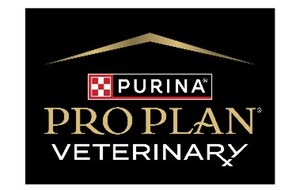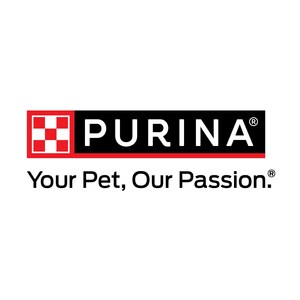
Purina Shares Expertise on 'Achieving a Performance Edge'
Elite Trainers and Handlers Attend 2014 Sporting Dog Summit
ST. LOUIS, Aug. 20, 2014 /PRNewswire/ -- Some of the country's top dog handlers and trainers, as well as sporting dog journalists, recently were treated to tips on ways to enhance canine performance success by experts at the 2014 Purina Sporting Dog Summit. The two-and-a-half day program, titled "Achieving a Performance Edge," was held at the Purina Event Center in Gray Summit, Mo., July 28-30.
In his welcome, Joe Sivewright, President and COO of Nestle Purina PetCare – North America, said, "The caliber of trainers here literally is like a who's who in the sporting dog world. We believe you deserve the best. When you're successful, we're successful. I am confident that the experts we've assembled for this Summit will make this program meaningful and help you and your dogs gain a competitive edge."
Taking time from busy summer training camps and field trials to attend the Summit were trainers and handlers from across the sporting dog world, including retrievers, bird dogs, coonhounds and Beagles. In addition, representatives of conservation organizations, including Ducks Unlimited, Pheasants Forever, Quail Forever, and the Ruffed Grouse Society, attended. The presentations covered training and conditioning, nutrition, and sports injuries and rehabilitation for hardworking dogs.
"The Summit was incredible. I found it extremely helpful, especially the part on soft-tissue injuries because we deal with this on an ongoing basis," said Tom Dokken, a professional retriever trainer and owner of Dokken's Oak Ridge Kennels in Northfield, Minn. "This information will spread to sporting enthusiasts everywhere. I personally will use it in my retriever training seminars."
Purina Senior Research Scientist Arleigh Reynolds, a veterinarian who is board-certified in veterinary nutrition and who trained the sprint dog team that is the reigning International Federation of Sled Dog Sports World Champion, said, "A concept that has developed over the past 12 years is periodizing nutrition and conditioning. It involves manipulating training variables to maximize capacity and performance."
Director of the Comparative Orthopaedic Laboratory at the University of Missouri, James L. Cook, a veterinarian who is board-certified in small animal surgery and in sports medicine and rehabilitation, said, "Sporting dogs are different. The types of injuries, methods of prevention, diagnosis, treatment, rehabilitation, goals, and expectations are different for these world-class canine athletes than for pet dogs. Three key take-home points are to always warm up a dog before training and competition, allow time for recovery between high-intensity activities, and cool down a dog after exercise."
Jennell Appel, a veterinarian and certified canine rehabilitation therapist who uses her SportVet Canine Rehabilitation and Sports Medicine Mobile Clinic to treat canine athletes in the field, reviewed normal gait patterns and how to identify problems. "It is so important to recognize lameness early before it turns into a chronic problem," she said. "You have the ability to catch injuries because you see your dogs every day."
Purina Research Nutritionist Brian Zanghi said, "We are often asked how much water a performance dog needs. For daily resting water needs, we recommend a one-to-one ratio of food calories to water volume in milliliters. Water loss during exercise can vary with intensity, duration and outside temperature, so it is important to encourage extra water consumption the day before exercise possibly by adding water to food."
"The information I've learned from the Sporting Dog Summit will go a long way in helping me train my Beagles," said Vic Costanza, of Frankfort, N.Y., a member of the Large Pack Beagling Hall of Fame and owner of Maravic kennel. "The importance of giving dogs time to rest and recover from hard work really hits home."
The Purina Sporting Dog Summit included panel discussions featuring case examples and questions from the trainers relating their own experiences. Networking opportunities allowed the attendees to get acquainted with others who are passionate about hardworking dogs and their sports.
"We have received great feedback about the Summit from those who attended, and we already have begun to plan another one for 2016," said Bob West, Purina Director of Sporting. "The success of this year's program has accomplished our primary goal – to give trainers and handlers the tools and knowledge to support them and their dogs on their journey to achieve performance success."
Tips on Training and Conditioning Sporting Dogs
Here are tips the experts presented at the 2014 Purina Sporting Dog Summit on training and conditioning dogs for fieldwork and competition.
- Each dog is an individual. Use a customized training and conditioning program to help a dog achieve his or her potential.
- A recovery program that includes cross-training and fun activities, such as walking, hiking and swimming, is essential after a field trial season. The benefits include improved strength, increased range of motion and function, reduced pain and injury, less need for medications, and improved weight management and cardiovascular function.
- Hydration is important. Keep in mind that 50 to 70 percent of a dog's body weight is water, so giving small amounts of cool water every 15 minutes during exercise is ideal.
- Never take a dog from the crate to training or performance. Be sure to warm up a dog's muscles for 10 to 15 minutes before a bout of exercise by doing submaximal, activity-specific exercises, such as trotting, jogging up a hill, small jumps, inclines, and big figure 8s.
- Cooling down a dog after exercise is important. Be sure to allow 10 to 15 minutes post-exercise for a dog to gradually slow down.
- Overtraining increases the risk of injuries due to fatigue and could cause mental and physical burn-out.
- Canine athletes should be fed a performance food year-round. Monitor a dog's body condition to determine if you should reduce the portion fed during the off-season.
About Nestle Purina PetCare
Nestle Purina PetCare promotes responsible pet care, community involvement and the positive bond between people and their pets. A premiere global manufacturer of pet products, Nestle Purina PetCare is part of Swiss-based Nestle S.A., a global leader in nutrition, health and wellness.
Photo - http://photos.prnewswire.com/prnh/20140819/137583
SOURCE Nestle Purina PetCare







Share this article